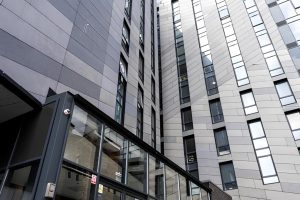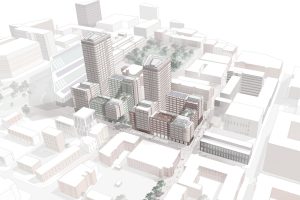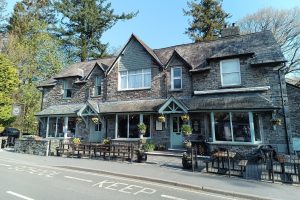Darling’s National Insurance hike a "sting in the tail" for business

CHANCELLOR Alistair Darling today conceded the recession had been deeper than he’d expected as he revealed a super-tax on banks wanting to pay employees big bonuses.
He also announced a 0.5% rise in all employer, employee and self-employed National Insurance rates in 2011 and a squeeze on public sector pay rises to 1%.
Addressing a packed House of Commons for his hotly anticipated Pre-Budget Report – six months ahead of an expected General Election next May – Mr Darling said the economy was expected to have shrunk by 4.75% this year – higher than his original estimates of 3.5%.
With all eyes on the worryingly large public deficit Mr Darling said it would rise to £178bn next year – some £3bn more than early predictions.
With populist measures such as a scrappage scheme for old inefficient central healing boilers and of course the widely expected tax on bankers’ bonuses – 50% on any bonus of over £25,000, which will be paid by the employer not the individual – there was little detail on how Mr Darling plans to cut Government spending.
Mr Darling confirmed that VAT would return to 17.5% from January 1 – shunning the pleas from the retail sector to defer the hike by a couple of weeks to allow them to get past the post Christmas sales period.
There were measures too for small businesses – which will be exempt a planned 1p corporate tax hike – while there was planned investment in high-tech sectors such as low carbon-based industries and biotech companies.
Throughout his speech Mr Darling stressed that the Government wanted to promote growth without “putting the recovery at risk”.
Shadow Chancellor George Osborne said Mr Darling had not given the country a Pre- Budget Report but a “Pre-Election Report” because he had ducked the key issue of cutting the deficit.
Aside from the national picture, the PBR did contain some significant North West schemes – the most interesting being the introduction of rail electrification on routes linking Liverpool, Manchester and Preston.
And a devolved package for Greater Manchester as a City Region was announced.
This includes designation the city as the UK’s fourth low carbon economic area for the built environment, along with new powers on adult skills and training and giving the region a stronger role on transport decision making.
It also said an additional £167m would be made available to support access to finance for SMEs in the region from January 2010.
Ed Dwan, tax partner at BDO in Manchester said the PBR was something of “an anti-climax” because there was little action on tackling public sector debt.
“It was steady as you go. He hasn’t addressed the fundamentals, there is no plan to reduce the deficit,” he said.
He described the proposed hike in National Insurance Contributions as “the sting in the tail”, which would hit all major employers at a “critical time” as they recover from the recession.
“There is a timebomb for 2011 with the National Insurance increase, which effectively is a 1% rise in insurance costs for firms as employers and employees each bear a 0.5% increase.
“Most businesses are not going to think they have had any help and for them it is still a question of surviving.”
He welcomed the move to defer corporate tax rises on small firms and said a tax break for companies making profits out of patents was “good news” as it would boost high tech industries and may promote foreign investment.








